Phytesia 1A
Garden orchids resistant to frost
€166,988
total amount raised in round
200%
- Backed by over 170 investors
Campaign Closed
DISCLAIMER
Every investment decision must be based on an examination of an exhaustive set of information provided by the entrepreneur on their online profile. Spreds only proceeds to a limited verification of this information and does not control the investment opportunity within this company. Spreds did not verify the extent to which the business plan is deemed realistic and does not intervene in determining the final terms of the investment, including the retained maximum valuation. Spreds will align itself with the financial terms negotiated with the co-investor(s).
Description
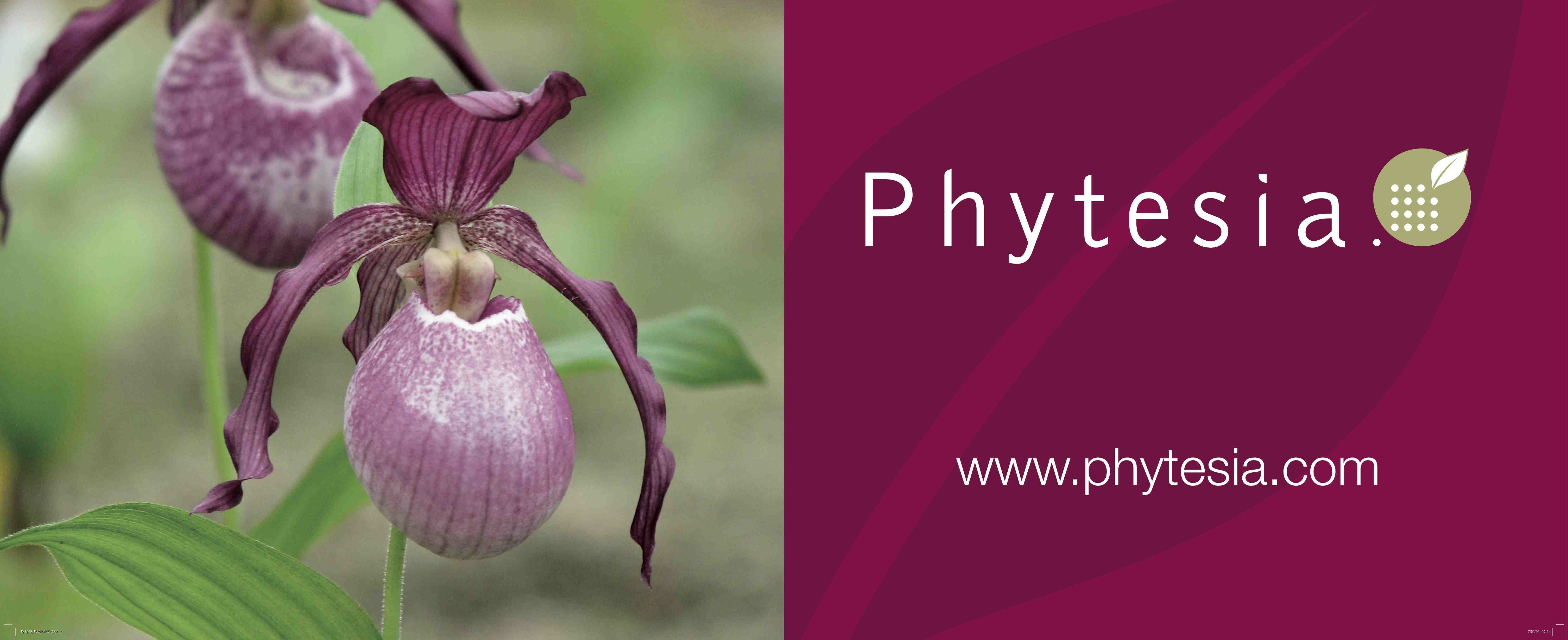
Phytesia SA is a spin-off company of the University of Liege created in 2003. The company participates in development of new kinds of vegetal production thanks to the numerous possibilities offered by the techniques of in vitro culture and multiplication. It pays special attention to rare or under-used plants and seeks to develop in vitro techniques that facilitate production of a much greater number of them.
After some years of work, guided by demand, the activity of the company has been exclusively concentrated on varieties of orchids that were totally ignored until now. Phytesia has selected varieties of orchids coming from cold regions and resistant to temperatures as low as -30°C, which can be cultivated in our gardens. These plants which till now were not known to the general public have become the speciality of Phytesia.
Phytesia is the first company to have perfected production techniques tailored specifically to perennial orchids. As pioneers, we have come to occupy the position of worldwide leader in this domain. Today, the company has more than 60 varieties in production in the laboratory, with around twenty in large scale production with applications in the sectors of horticulture, cosmetics, the food industry and medicine.
Problem
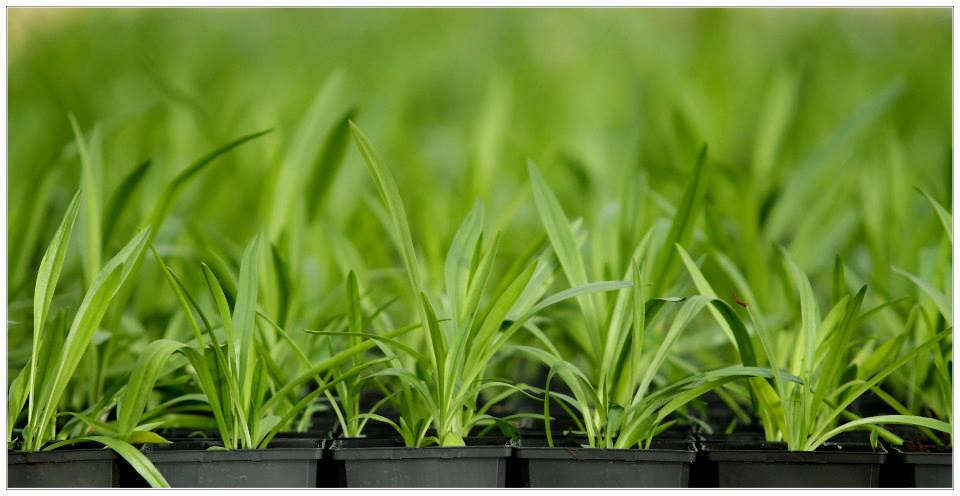
The modern economy uses just a small proportion of the plant varieties existing on earth. This dependence on a small group of vegetal species concerns all sectors of activity that make use of plant material. Agriculture uses just thirty or so species to satisfy 95% of mankind’s nutritional needs. Decorative horticulture uses around 180 different species. Medicinal plants or plants grown for cosmetics and pharmaceuticals involve several hundred species, while scientists have identified more than 6,000 species producing interesting secondary metabolites.
Many plants today remain unused because it is impossible to produce them on a large scale.
Idea

Phytesia was born of the desire to develop in vitro techniques making it possible to produce certain rare plants in greater quantities.
Everyone knows orchids; everyone has bought them at one time or another. More than 500 million plants are sold every year in Europe…
Nevertheless, the varieties marketed today are varieties of tropical origin, poorly adapted to our climatic conditions. They are very often produced in greenhouses heated to 30°C that require heavy energy inputs (heating, lighting, etc.).
Phytesia has selected rare varieties of orchids originating from the cold regions of the globe… Cypripedium from the Canadian Rockies, Orchis from the Alps, varieties present in the wild on the Russian steppes or in the Himalayan mountains, varieties from the Fagnes or Flanders… in short, varieties which are naturally suited to climates similar to our own.
Nevertheless, many of these perennial orchids are today heading for extinction, because they are only present in a few isolated areas. Moreover, they are protected by international regulations (CITES) which forbid the harvesting of wild plants in order to protect the natural sites and safeguard the species.
This is where Phytesia comes in... Our team has perfected a unique and original technique of reproducing these rare varieties. It consists in cultivating the plants in vitro to increase their number without taking plants from the wild and putting the species in danger. After more than 10 years of research, Phytesia has today nearly 60 varieties in production in vitro. Since 2013, nearly 500,000 young plants in vitro leave the laboratory every year.
Greenhouses installed in the Condruz area then receive the orchids and continue their cultivation. Upon leaving the laboratory, the young plants are raised for a further three to four years before the first blooms appear and they go on sale to the general public.
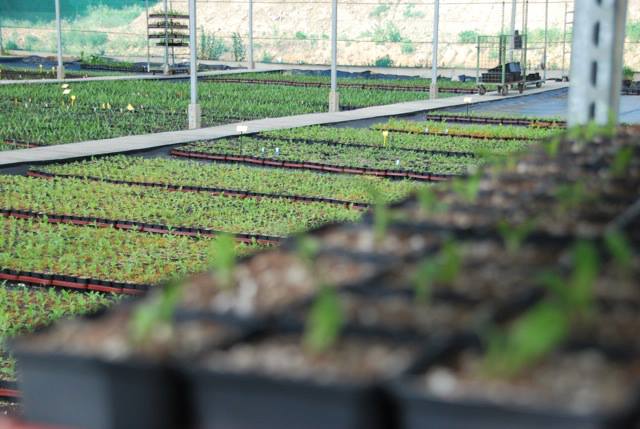
Phytesia is ...
- A unique and original product: the Phytesia laboratory is the only one in the world to have mastered in vitroproduction of a large range of perennial orchids.
- A growing market: Since its founding, Phytesia's sales have been growing substantially (from 35,000 plants in 2003 to around 250,000 plants in 2014).
- A diversified market: Around forty varieties are marketed to the decorative horticulture sector (80% of the company’s present sales turnover); Phytesia also markets three varieties whose main active ingredients are used to formulate cosmetics; and one variety for therapeutic use. Future developments should also make it possible to use many varieties for the food industry.
- Protection of biodiversity: Most perennial orchid species are now in danger of disappearing from their natural environments, and the development of a production chain has not only a business side to it but also a certain ecological interest. By marketing plants grown in the laboratory it will be possible to make them accessible while protecting their natural habitats.
- Environmentally friendly production: Floriculture in general and the production of orchids in particular are activities that consume a lot of energy. Indeed, the majority of orchids currently being sold are of tropical origin and their production in our climate requires a lot of energy inputs (heating the greenhouses to 27°C, artificial lighting, etc.). By contrast, the range of perennial orchids developed by Phytesia needs only small energy inputs (no heating for the greenhouses, no artificial lighting).
Marketing strategy
While orchids coming from the tropics have become a leading product of decorative horticulture (the European market is in the order of 500 million plants per year), perennial orchids still remain a niche product. More than 99% of the population are unaware of the existence of orchid varieties which can withstand garden temperatures as low as -25°C or -30°C. The distribution of garden orchids at points of sale (garden centres, hypermarkets, mail order, etc.) also remains marginal. The plants (available in limited quantities till now) are generally only available at a few points of sale and/or for very brief periods, all of which also limits the opportunity for consumers to discover them.
The funds freed up by the increase of capital will be used principally to promote and increase knowledge of perennial orchids, as well as to improve the distribution of the product and organise new distribution channels for the horticultural sector.
The funds freed up by the increase of capital will be used principally to promote and increase knowledge of perennial orchids, as well as to improve the distribution of the product and organise new distribution channels for the horticultural sector.
Distribution strategy
Since price is a limiting factor for mass distribution, Phytesia has developed a special range called ‘Easy garden’ (the most vigorous varieties, especially suited to beginners or gardeners who want an impressive display of beautiful orchids quickly and at a very affordable price) for mass distribution outlets (wholesalers, garden centre chains, etc.).
In parallel, Phytesia offers two other ranges (‘Trendy garden’ and ‘Collection Garden’) for a more experienced consumer or those looking for a rare orchid. These varieties are distributed through the entire European Union via specialist retailers or via our online platform.
In parallel, Phytesia offers two other ranges (‘Trendy garden’ and ‘Collection Garden’) for a more experienced consumer or those looking for a rare orchid. These varieties are distributed through the entire European Union via specialist retailers or via our online platform.
Phytesia wants to increase the sale of ‘Easy Garden’ varieties to horticultural wholesalers and retailers.
At the same time, Phytesia wants to organise the sale of the ‘Trendy Garden’ and ‘Collection Garden’ varieties principally to B to C clients (via an online sales platform) as these varieties are not generally distributed by wholesalers (too costly). In addition, clients who have purchased a first variety in a garden centre often then become interested in garden orchids and discover Phytesia for the purpose of buying other varieties.
At the same time, Phytesia wants to organise the sale of the ‘Trendy Garden’ and ‘Collection Garden’ varieties principally to B to C clients (via an online sales platform) as these varieties are not generally distributed by wholesalers (too costly). In addition, clients who have purchased a first variety in a garden centre often then become interested in garden orchids and discover Phytesia for the purpose of buying other varieties.
Internationalisation strategy
Presently 95% of Phytesia's sales are within the European Union, whereas the geographic areas showing big growth in horticulture (United States, Canada, Russia and Eastern countries, China, etc.) have a climate similar to ours and thus are well suited to our products. Orchids travel well in the form of vitro-plants (laboratory) or bulbs (during the dormant period). Participation in exhibitions in these geographic areas is aimed at identifying new potential clients (retailers, wholesalers) and/or setting up collaborations for local production and distribution.
Intellectual Property
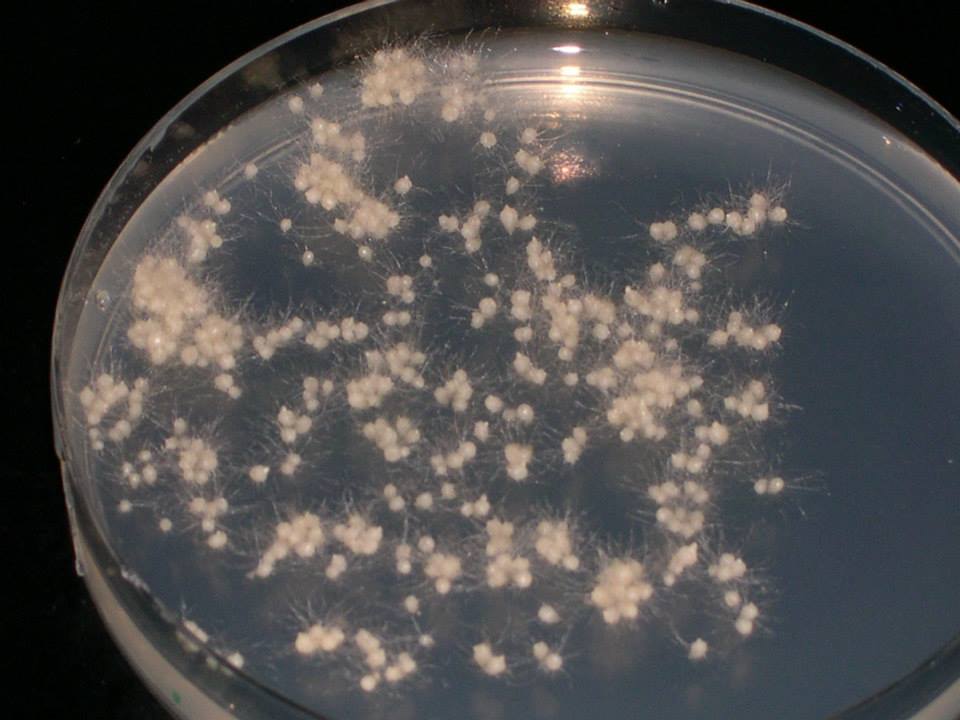
The in vitro production technology as adapted to perennial orchids which is used today by Phytesia was first developed in 1999 by Pascal Lambé as a First Spin-off project of the Molecular Biology and Biotechnology Laboratory (Prof. Jacques Dommes, University of Liège (ULG)). On 14 January 2003, GESVAL (a Promotion Company of the ULG) granted Phytesia an exclusive operating licence for this technology. In addition, in 2006 Phytesia acquired the complementary in vitro multiplication technology developed by AFE Consulting NV (East Flanders). This acquisition made it possible not only to pool the respective knowledge and thus to improve the technology, but also and above all to exercise control over nearly the entire in vitro production of temperate orchids.
Major contracts
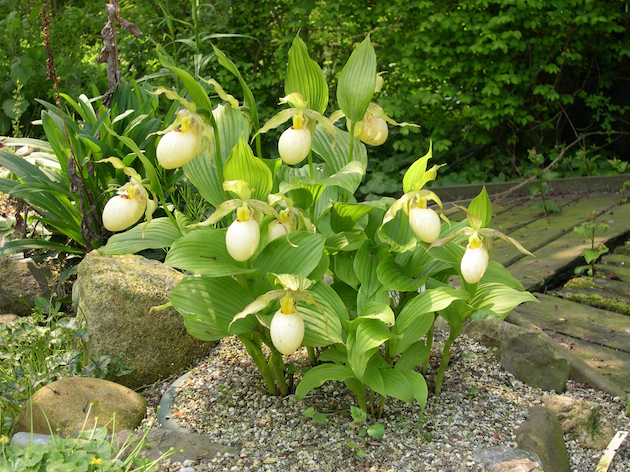
Phytesia works together with numerous Belgian and foreign wholesalers for the distribution of perennial orchids (Flora-Holland, Floréac, IBH-Plants, Gasa, etc.). Phytesia also supplies many garden centres and mail order companies. 95% of Phytesia’s production is presently sold outside of Belgium.
The collected funds will mainly be used for 3 purposes:
- R&D (20%): Identification of new varieties of perennial orchids, clarification and optimisation of the in vitro multiplication of the new varieties, developments of growings for the cosmetic applications, dietary, and medicinal.
- Production (40%): The perennial orchids must be cultivate 3 to 4 years before reaching a flowering’ size. The collected funds will partly allow financing the immobilization of the increasing quantities of orchids at labs and glasshouses.
- Promotion (40%): The perennial orchids stay today a very little known product. 99% of the population doesn’t know that some varieties can resist in the gardens until some temperatures to -30°C. An important effort will aim at making the product known for the general public (radio publicity, TV, press articles, social networks, …)